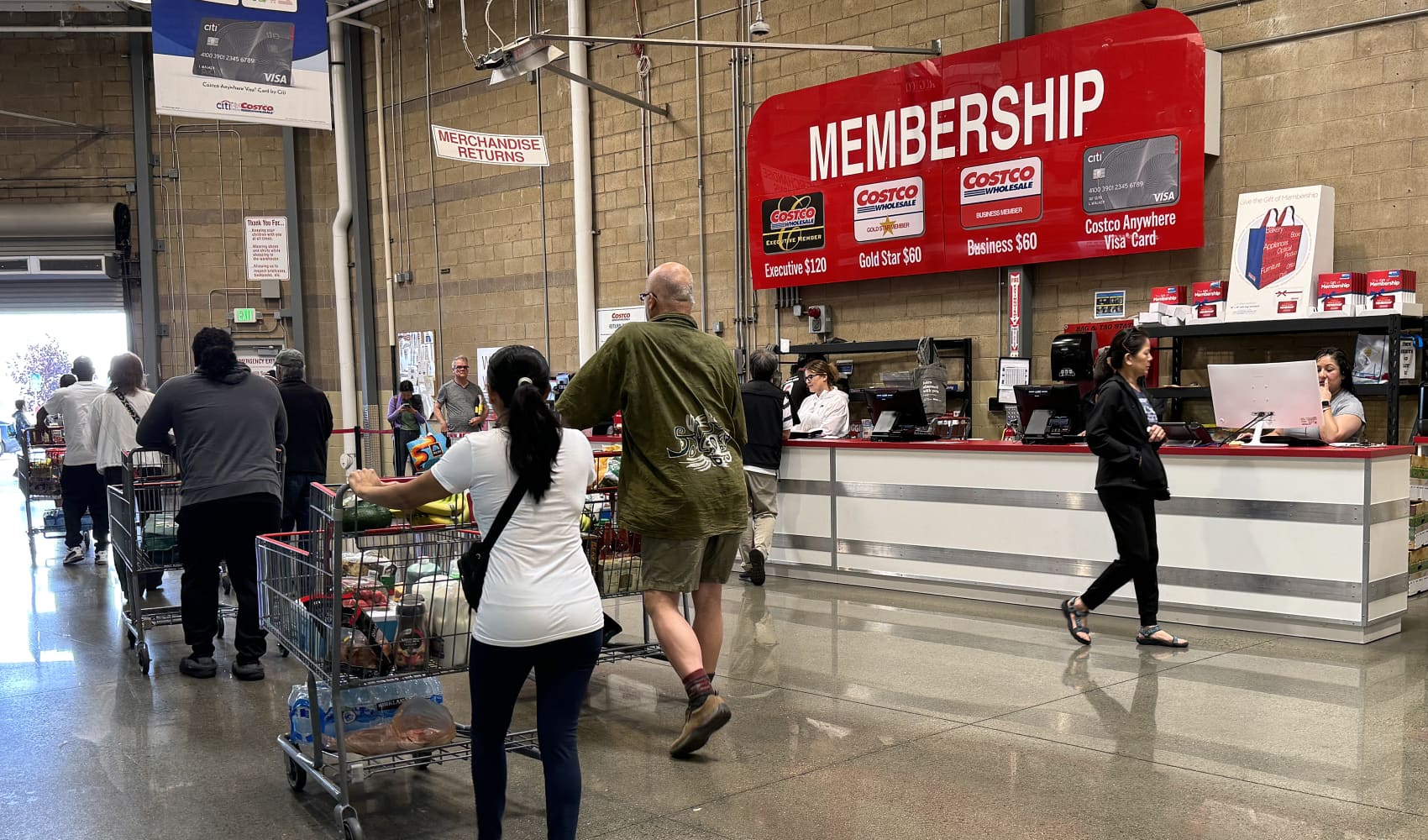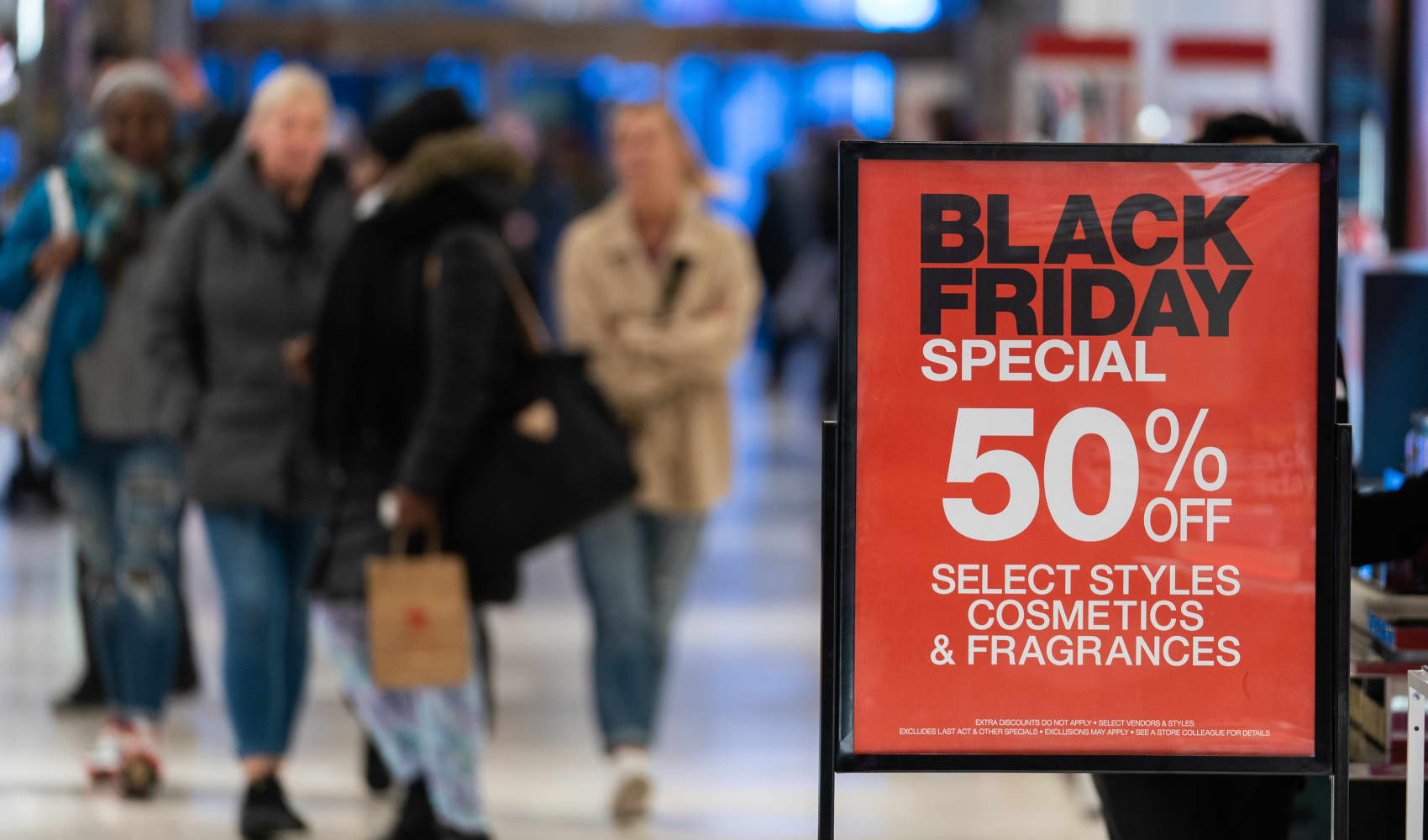
- The U.S. economy has so far defied predictions of a coming recession, but many large companies are laying off workers.
- Here's what to know about jobless benefits.
The job market is undeniably cooling.
Though the Labor Department's weekly jobless claims report released on Wednesday showed initial claims for state unemployment benefits dropped 24,000 to a seasonally adjusted 209,000 in the week ending Nov. 18, figures for new and continuing claims remained near highs for this year.
Several large companies have been laying off workers. Over the past few months, Roku, Discord, Liberty Mutual and Citigroup announced deep cuts to their head count.
More from Personal Finance:
Here's how to prevent a costly divorce
More part-time workers to get retirement plans next year
Black Friday deals aren't as good as you think. Here's how to snag even lower prices
A job loss can be traumatic, emotionally and financially. Fortunately, the unemployment insurance program, created in 1935, offers support to certain people who've experienced a disruption to their pay.
Here's what to know.
Money Report
Don't assume you're ineligible for benefits
Generally, to be eligible for unemployment benefits, you must have lost work or wages "through no fault of your own," Michele Evermore, a senior fellow at The Century Foundation, told CNBC in a previous interview. If your company was downsizing or said the cuts were not tied to performance, you likely are eligible for the benefit.
Get a weekly recap of the latest San Francisco Bay Area housing news. Sign up for NBC Bay Area’s Housing Deconstructed newsletter.
Yet not all cases are so clear cut, and many people prematurely exclude themselves from the program, Evermore said. "There's a lot of mythology around who qualifies."
As a result, it can't hurt to put in a claim.
Unemployment programs vary by state, but in some places, people can get the benefits even if they've quit.
For example, if their employer asked them to transfer to a new location where their commute would be unreasonable, or if they had to leave their job because their partner's employment was relocated, they may be able to collect.
Apply for unemployment quickly
In some states, it can take weeks for your claim to be approved, so the sooner you file, the better.
"As soon as you leave your job, you should be on your way to the unemployment insurance office," Evermore said.
While most states have a one-week waiting period before they can start paying you benefits, you don't have to wait to request the relief, she said.
Apply with your state unemployment office. You can typically submit an application online or over the phone.
Assess program requirements
To receive unemployment benefits, you have to be able to work and actively be seeking new employment, Evermore said.
States have different ways of making sure you're looking for work, she added. In some cases, you'll be responsible for keeping a log of work search efforts on your own, and in other states, you'll have to call in to the state unemployment office and share what jobs you've applied to on a regular basis.
When you apply, make sure you learn about how to fulfill any requirements in your state, so that your benefits continue.
Get a handle on taxes
Unemployment benefits are subject to federal levies and most states tax them, too.
When you start to get unemployment payments, your state will typically give you the option to have taxes withheld.
"I'd always take that option," Evermore said. "You could be in for a long spell of unemployment and then get hit with a big tax bill."
Look for other aid, too
In the second quarter of 2023, the average weekly unemployment benefit was around $424. But there's a large range in the payments by state.
There are other resources, too, for people struggling financially due to job loss, Evermore said.
"Unemployment insurance isn't the only program in the world," Evermore said, adding that out-of-work people can also try applying for food stamps and other relief.
You may also need to figure out a plan for getting new health insurance.
"As overwhelming as it may be, it's important to look for coverage quickly," said Caitlin Donovan, a spokesperson for the National Patient Advocate Foundation, a nonprofit. "The last thing you want to do is remain uninsured."
Don't miss these stories from CNBC PRO:
- Michael Burry reveals new bet against chip stocks after closing out winning market short
- Warren Buffett's Berkshire trimming holdings, keeping new stock secret
- It's been 2 years since the Nasdaq hit a record and it's gone nowhere since
- Deutsche Bank says this electric flying vehicle stock will more than double in the next 12 months






